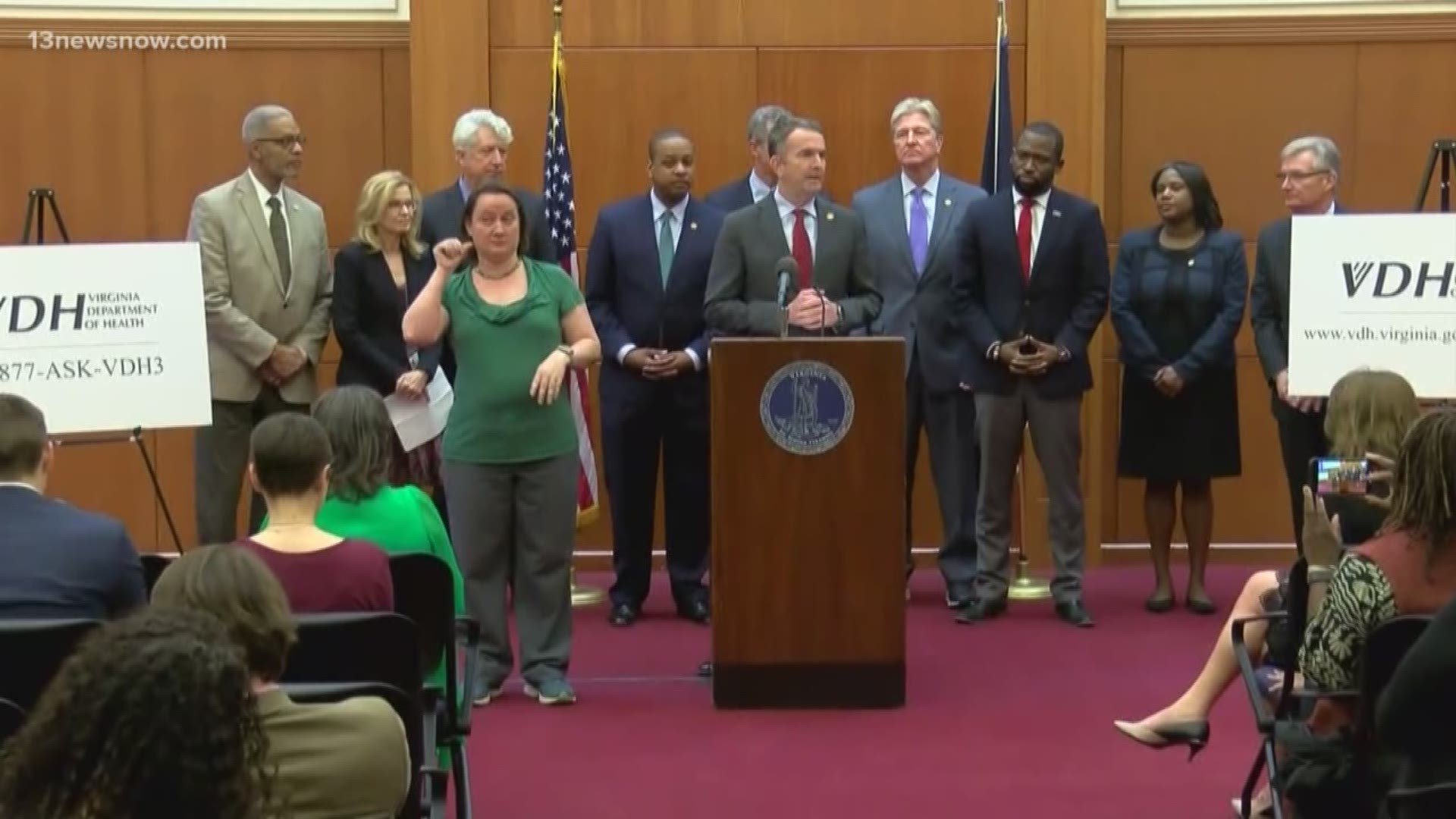RICHMOND, Va. — Virginia Gov. Ralph Northam has declared a state of emergency in response to the coronavirus pandemic, as the state's number of confirmed cases grew to 17.
Northam on Thursday advised all Virginians to avoid large gatherings “for the time being.”
He says he was canceling all state conferences and large events for the next 30 days and urged local governments and private organizers to follow suit.
Numerous local events, including the Norfolk St. Patrick's Day Parade and the Yuengling Shamrock Marathon Weekend, have been canceled.
“Our top priority is to make sure Virginians stay safe and healthy, and that our response to this situation leaves no one behind,” Northam said. “From our health department, to our schools, to our hospitals, to our transit systems, Virginia’s agencies and institutions have been thoroughly planning for every scenario. This emergency declaration will ensure we can continue to prepare for and appropriately respond to Virginians’ needs during this time.”
He also announced new restrictions on travel for state workers.
The governor's emergency declaration is an administrative tool that allows for additional flexibility in dealing with the outbreak.
Virginia Attorney General Mark Herring said anti-price gouging statutes would go into effect as a result of the state of emergency.
Enacted in 2004, Virginia's Post-Disaster Anti-Price Gouging Act prohibits a supplier from charging “unconscionable prices” for “necessary goods and services” during the thirty-day period following a declared state of emergency.
Items and services covered by these protections include but are not limited to water, ice, food, cleaning products, hand sanitizers, medicines, personal protective gear and more.
The basic test for determining if a price is unconscionable is whether the post-disaster price grossly exceeds the price charged for the same or similar goods or services during the ten days immediately prior to the disaster.
Suspected violations of Virginia's Anti-Price Gouging Act should be reported to Attorney General Herring’s Consumer Protection Section for investigation, as violations are enforceable by the Office of the Attorney General through the Virginia Consumer Protection Act.
The Associated Press contributed to this report.

